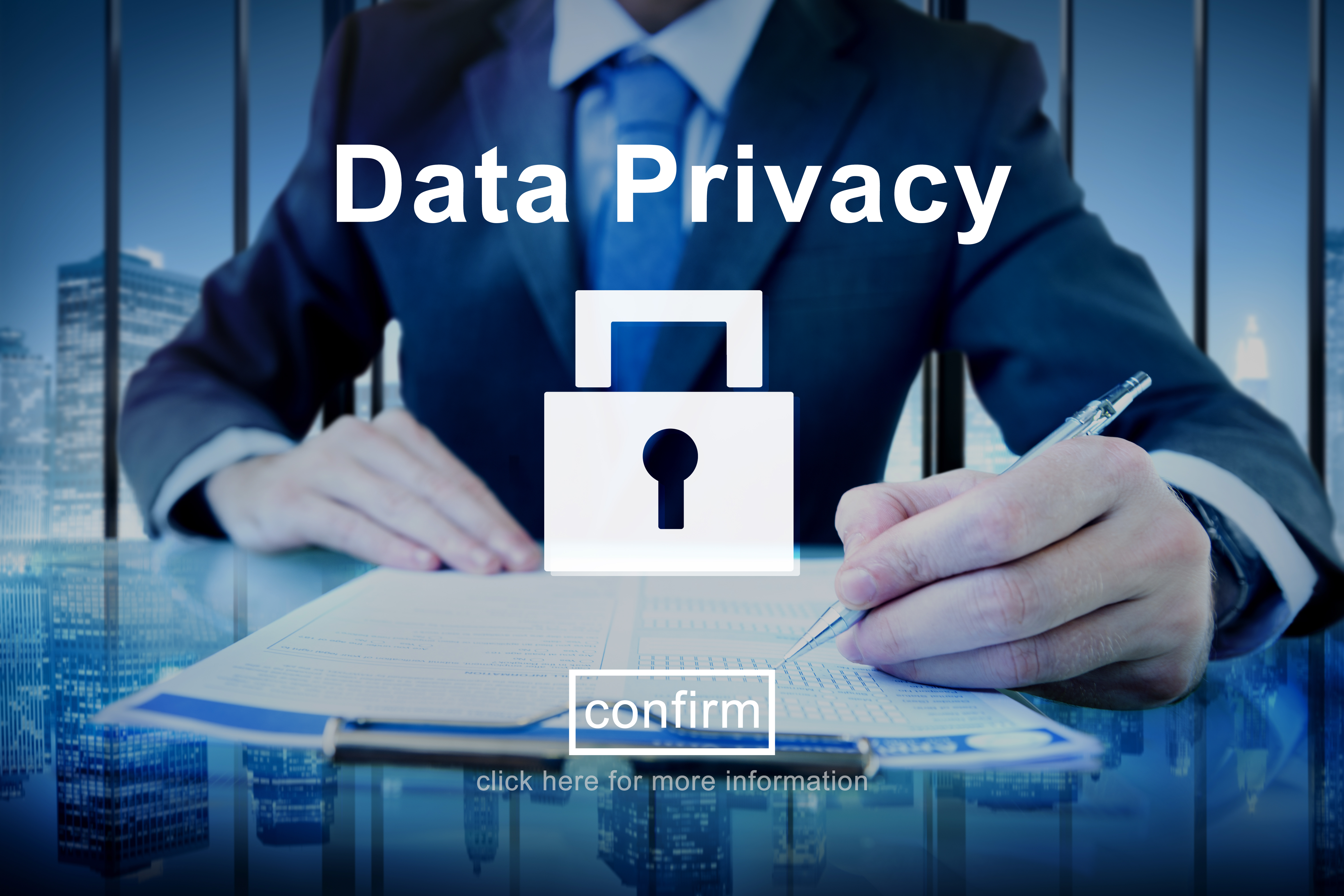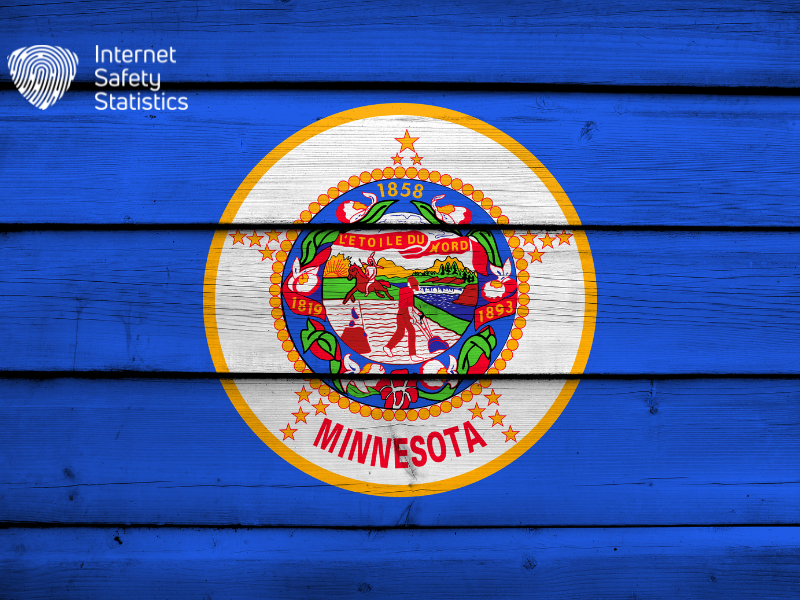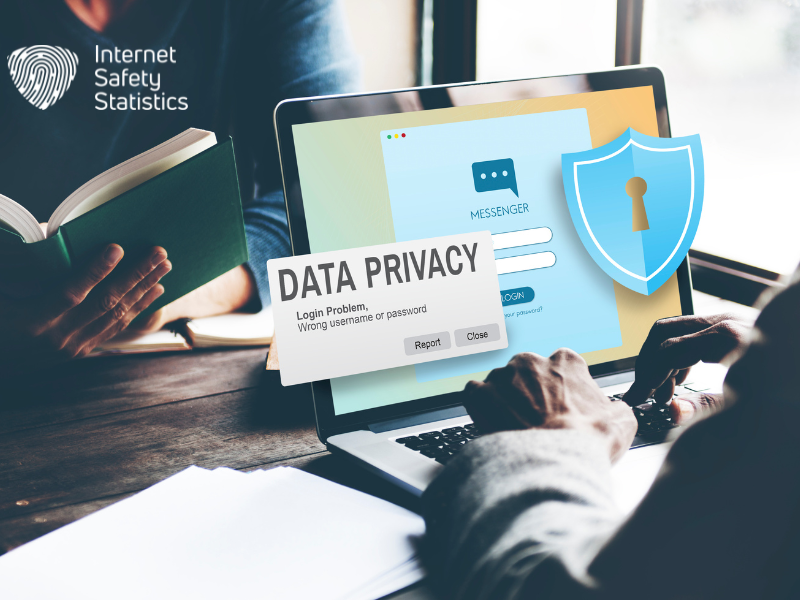
Data Privacy Laws in Minnesota play an increasingly crucial role in our digital lives. As we navigate a world where personal information flows freely through online interactions, from social media profiles to online purchases, the data we generate paints a detailed picture of who we are. This underlines the growing need for robust legal frameworks to protect our privacy in the digital age.
This article delves into the landscape of data privacy laws within the state of Minnesota. We’ll explore the growing importance of data privacy, contextualising it within the broader legal landscape of the state. By understanding the current legal landscape, Minnesotans can make informed choices about their data and hold organisations accountable for responsible data handling practices.
Overview of Data Privacy Laws in Minnesota

The legal landscape surrounding data privacy can be complex and vary depending on your location. This section provides an overview of data privacy laws specific to the state of Minnesota.
Brief Introduction to State-Specific Legislation
Unlike some states, Minnesota does not currently have a single, comprehensive data privacy law. However, this doesn’t mean there are no protections in place for Minnesotans’ data privacy. The state leverages a patchwork of laws that address data privacy concerns in various contexts. Understanding these different statutes is essential to navigating your data privacy rights within Minnesota.
Key Statutes Governing Data Privacy
Here’s a breakdown of some key Minnesota statutes that play a role in data privacy:
Minnesota Government Data Practices Act (MGDPA)
This act regulates how government entities in Minnesota collect, store, use, and share data about individuals. It grants Minnesotans certain rights regarding their personal data held by government agencies, including the right to access, amend, and in some cases, request deletion of their data.
Minnesota Gramm-Leach-Bliley Act (GLBA)
This law, aligned with the federal GLBA, regulates how financial institutions collect, use, and disclose the personal information of their customers. It mandates financial institutions to provide customers with a privacy notice outlining their data practices and offering them choices regarding how their information is shared with third parties.
Minnesota Common Law Privacy Rights
In addition to statutory protections, Minnesota recognises certain common law privacy rights, such as the right to privacy in a private setting and the right to be free from public disclosure of private facts. These rights can be invoked in specific situations where an individual’s data privacy has been unreasonably intruded upon.
It’s important to note that this is not an exhaustive list, and other Minnesota laws might touch upon data privacy depending on the specific context. Additionally, the legal landscape of data privacy is constantly evolving, with potential for new legislation or amendments to existing statutes.
By understanding these key statutes, you can gain a better grasp of your data privacy rights in Minnesota. However, it’s always advisable to consult with an attorney specialising in data privacy law for specific legal advice regarding your unique situation.
Scope and Applicability

While Minnesota lacks a single, overarching data privacy law, the existing patchwork of legislation targets specific entities and data types. Understanding the scope and applicability of these laws is crucial to determine their relevance to your situation.
Entities Covered by Minnesota Data Privacy Laws
Minnesota’s data privacy laws don’t apply uniformly to all entities. Here’s a breakdown of the key categories covered by existing legislation:
Government Agencies
The Minnesota Government Data Practices Act (MGDPA) primarily applies to government entities within the state, including state agencies, local governments, and public schools. This act regulates how these entities collect, use, and share data about individuals.
Financial Institutions
The Minnesota Gramm-Leach-Bliley Act (GLBA) aligns with its federal counterpart and focuses on financial institutions operating within the state. This includes banks, credit unions, insurance companies, and investment firms. The GLBA governs how these institutions handle the personal information of their customers.
Types of Data Protected
The specific data types protected by Minnesota’s data privacy laws vary depending on the applicable statute. Here’s a general overview:
- MGDPA: This act safeguards a wide range of personal data collected by government agencies, including names, addresses, Social Security numbers, medical records, and financial information.
- GLBA: This law focuses on protecting the non-public personal information of financial institution customers. This can include data such as account numbers, transaction history, credit scores, and income information.
It’s important to note that these are just the primary categories. Some Minnesota laws might offer protections for specific data types not mentioned here, depending on the context. For instance, certain healthcare privacy laws might offer additional safeguards for medical records.
Additional Considerations
- Federal Laws: Minnesota’s data privacy landscape needs to be viewed within the context of broader federal data privacy laws, such as the Federal Trade Commission Act (FTC Act) which grants the FTC authority to regulate unfair and deceptive data practices.
- Future Developments: The legal landscape of data privacy is constantly evolving, and Minnesota might enact more comprehensive data privacy legislation in the future.
By understanding the scope and applicability of existing Minnesota data privacy laws, you can gain a clearer picture of the protections available to you regarding your data privacy within the state.
Impact of Data Privacy Laws on Businesses: The Minnesota Example
While Minnesota doesn’t have a single, comprehensive data privacy law, the existing patchwork of legislation, particularly the Minnesota Government Data Practices Act (MGDPA), still has a significant impact on businesses operating in the state. Here’s a breakdown of the MGDPA’s impact, compliance requirements, and potential challenges businesses might face.
Impact of the MGDPA on Businesses
The MGDPA primarily applies to government agencies, but it also indirectly impacts businesses that interact with these agencies or collect personal data from Minnesota residents. Here’s how:
Data Sharing Restrictions
Businesses that share personal data about Minnesota residents with government agencies must comply with the MGDPA’s data-sharing restrictions. This may involve obtaining consent from individuals before sharing their data or ensuring the data shared is only used for authorised purposes.
Individual Rights
The MGDPA grants Minnesota residents certain rights regarding their personal data held by government agencies. This can include the right to access, amend, or request deletion of their data. Businesses that interact with government agencies may need to assist them in facilitating these individual data subject rights.
Data Security Requirements
While the MGDPA doesn’t explicitly mandate specific data security measures, it does require government agencies to take reasonable steps to safeguard personal data. Businesses that handle personal data on behalf of government agencies should implement appropriate security practices to minimise the risk of data breaches.
Compliance Requirements and Challenges
Understanding and complying with the MGDPA can present some challenges for businesses:
Complexity of the Law
The MGDPA can be complex, with various exemptions and specific requirements depending on the type of data and the context of its collection and use. Businesses may need to consult legal counsel to ensure compliance.
Data Sharing Agreements
Crafting data-sharing agreements with government agencies that adhere to the MGDPA’s restrictions can be a time-consuming process. Businesses need to clearly define the data being shared, and its purpose, and ensure authorised use by the agency.
Responding to Individual Requests
The MGDPA requires government agencies to facilitate individual data subject rights requests. Businesses that assist these agencies may need to develop procedures for handling such requests efficiently and securely.
Resources for Businesses
Several resources can help businesses understand and comply with the MGDPA:
- Minnesota Office of the Attorney General: The Attorney General’s website provides guidance on the MGDPA, including data subject rights and best practices for data security.
- Minnesota Department of Administration: The Department of Administration offers resources and training materials related to the MGDPA for government agencies, which can be helpful for businesses working with these entities.
- Legal Counsel: Consulting with an attorney specialising in data privacy law is highly recommended for businesses navigating the complexities of the MGDPA and ensuring compliance.
By understanding the impact of the MGDPA and utilising available resources, businesses operating in Minnesota can navigate the legal landscape of data privacy and build trust with their customers by demonstrating a commitment to responsible data handling practices.
Comparison with Other State and Federal Laws
While Minnesota’s approach to data privacy relies on a patchwork of laws, it’s still valuable to compare it to data privacy regulations in other states and at the federal level. Here’s a brief comparison highlighting some key differences:
Federal Laws
Federal Trade Commission Act (FTC Act)
The FTC Act grants the Federal Trade Commission authority to regulate unfair and deceptive data practices. This offers a broad but less specific framework compared to Minnesota’s MGDPA, which outlines clear data subject rights and limitations on data sharing with government agencies.
State Laws
The landscape of state data privacy laws is constantly evolving, with several states enacting comprehensive legislation in recent years. Here’s a glimpse into some notable comparisons:
California Consumer Privacy Act (CCPA) and California Privacy Rights Act (CPRA)
California has some of the strictest and most comprehensive data privacy laws in the US. The CCPA and CPRA grant California residents a wide range of data subject rights, including the right to access, delete, and opt-out of the sale of their personal information. Minnesota’s MGDPA offers similar rights but with a narrower scope, primarily focused on data held by government agencies.
Virginia Consumer Data Protection Act (VCDPA)
This recently enacted Virginia law shares some similarities with California’s approach, granting Virginia residents control over their personal information. However, there are also key differences, such as Virginia’s exemption for certain non-profit organisations, which isn’t present in Minnesota’s MGDPA.
Unique Aspects of Minnesota’s Laws
While Minnesota lacks a single, comprehensive data privacy law, it does have some unique aspects within its existing framework:
- Focus on Government Data Practices: The MGDPA’s emphasis on regulating how government agencies collect, use, and share personal data is a distinct feature not commonly found in other state data privacy laws that often target businesses more broadly.
- Data Subject Rights for Government Data: Minnesota residents have a well-defined set of rights regarding their personal data held by government agencies, including access, amendment, and deletion rights. This focus on individual control over government-held data is a noteworthy aspect of Minnesota’s data privacy landscape.
Important Considerations
- Compliance Challenges for Businesses: The patchwork nature of Minnesota’s data privacy laws can create compliance challenges for businesses, especially those operating in multiple states with varying regulations.
- Potential for Future Legislation: As the national conversation on data privacy continues to evolve, Minnesota might enact more comprehensive data privacy legislation in the future, potentially aligning more closely with stricter state laws like California’s CCPA or CPRA.
By understanding these comparisons, businesses and individuals alike can gain a broader perspective on Minnesota’s data privacy landscape and its place within the national conversation about protecting personal information in the digital age.
Conclusion
In today’s digital world, where our personal information constantly flows through online interactions, data privacy has become a paramount concern. This article explored the legal landscape of data privacy in Minnesota. While the state lacks a single, comprehensive data privacy law, a patchwork of existing legislation, particularly the Minnesota Government Data Practices Act (MGDPA), offers certain protections for Minnesota residents.
We examined the MGDPA’s impact on businesses operating in the state, highlighting compliance requirements and potential challenges. Businesses must navigate the complexities of the MGDPA to ensure responsible data handling practices, especially when interacting with government agencies or collecting personal information from Minnesota residents.
We also compared Minnesota’s approach to data privacy with federal regulations and laws in other states. While Minnesota’s focus on government data practices is unique, its current framework offers less comprehensive protections compared to stricter laws in states like California. This comparison underscores the potential for future developments in Minnesota’s data privacy landscape. As the national conversation on data privacy continues, Minnesota might enact more comprehensive legislation, aligning with the growing need for robust legal frameworks to protect our privacy in the digital age.
Ultimately, data privacy is a two-way street. Individuals deserve control over their personal information, and businesses have a responsibility to handle data responsibly. Understanding the legal landscape in Minnesota empowers both individuals and businesses to navigate this complex world and build trust in the digital age.
